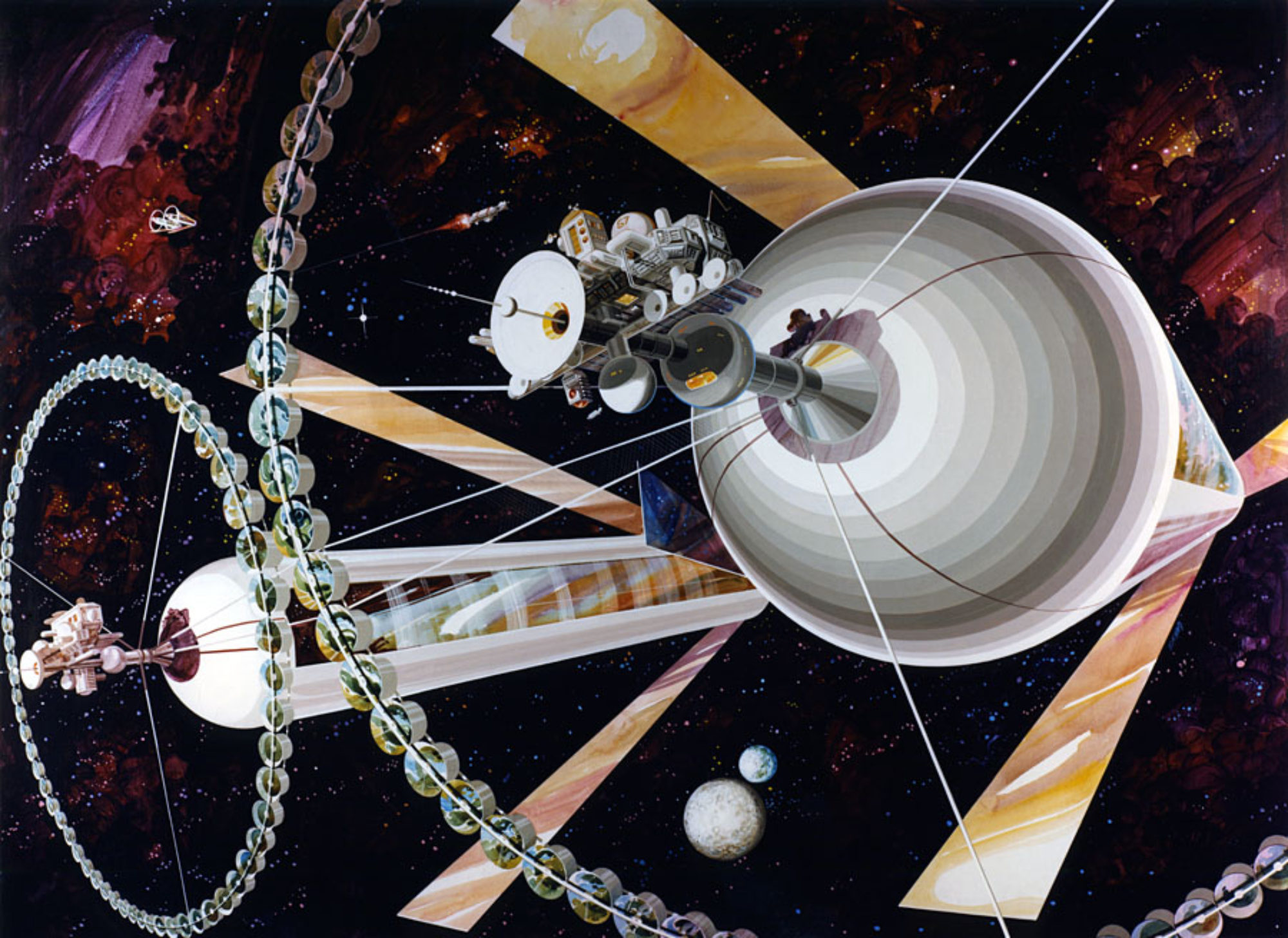
Fully closed environmental control life support systems for long term human space missions are difficult to achieve. But its possible to get closer using a novel approach proposed by Thomas Lagarde in a paper presented at the 69th International Astronautical Congress in Bremen, Germany which took place in October 2018. Using a combination of rotating greenhouses and worm composting units, the system would significantly reduce resupply while producing air and food with equipment that accelerates plant growth while efficiently recycling waste.
Lagarde starts with the inputs and outputs of a crew of six and determines what the surface area required for greenhouses to produce nutritious crops for sustenance and life support. He assumes that inflatable modules like Bigelow Aerospace’s B330 design could be a starting point for the enclosures and then extends the concept to a torus combining the advantages of a solid shell module with that of an inflatable. The greenhouses utilize a rotating garden concept called an “omega garden unit” (OGU) based on an Omega Garden, Inc’s rotary hydroponics system which maximizes crop yield while minimizing space requirements. Growing plants under these conditions, i.e. with artificial gravity, has been shown to activate plant hormones called auxin, thereby increasing their growth rate. The use of an organic light-emitting diode source at the axis of the centrifuge provides a commercially available solution for optimal light exposure while saving space, energy and generating less heat.
To make significant progress toward closure of the life support system recycling loop, human waste and non-edible plant parts become worm food in composting units. This natural process can be accelerated under the right conditions, achieving exponential growth of the worm population but can be self-regulated as described in detail in the paper.
Lagarde sums up the research by saying: “After studying all the different aspects of plant growth and composting, we can conclude that the combination of a rotating garden and processing of organic products by worms will provide enough food and fresh air for a crew of 6 in a minimal space.”
